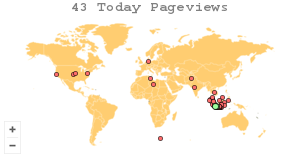PROFESIONALISME GURU MENURUT PERSFEKTIF AL QURAN DAN AL HADIST
DOI:
https://doi.org/10.47498/bashair.v2i1.937Keywords:
Professionalism, Teacher, Al Quran, Al HadistAbstract
This study aims to examine the meaning of teacher professionalism from the perspective of thal Quran and al Hadist. The method used in this research is a qualitative research with a literature study approach. The data used in this study are in the form of document data, both from al Quran, al Hadist, textbooks, scientific journals, and other relevant document sources. In terms of this literature study approach, researchers look for literature or library data in the form of teacher professionalism according to the perspective of al Quran and al Hadist. The results show that professional work must be matched with expertise. Teacher professionalism in the Qur'an shows that the teacher must have a democratic nature, be patient and be gentle in carrying out his noble duties, forgive and be consistent with his duties and responsibilities, be able to work together (cooperatively) and be compassionate both in action and in the form of prayer. In addition, professional teachers are also required to understand the student’s psychology, imitate the character of the Prophet Muhammad in the learning process and master knowledge in their fields. The results of this study are expected to be used as a reference for the teacher to improve their professionalism refers to al Quran and al Hadist, that implicated the quality of education and the educational goals.
References
Aas, A. (2021). Keutamaan Orang Berilmu ( Analisis QS . Al- ‘ Ankabut : 41-43 ). Journal Islamic Pedagogia, 1(1), 7–13.
As-Sa’di, S. A. bin N. (2012). Tafsir as-Sa’di (3rd ed.). Pustaka Darul Haq.
Azizah, K., & Fuadi, M. A. (2021). Profesionalisme Guru dalam Islam : Kajian Konseptual Hadits Tarbawi. 6(1).
Danim, S. (2011). Pengembangan Profesi Guru (1st ed.). Kencana Predana Media group.
Fikri, M., Nasir, A., & Arif, M. (2021). Sumbangan Studi Alquran Bagi Keilmuan Islam Dan Pendidikan. 1(June), 1–7.
Hawi, A. (2013). Kompetensi Guru Pendidikan Agama Islam. Rajawali Press.
Kamil, H., Khambali, & Suhardini, A. D. (2020). Implikasi Pendidikan Qs . Ali Imran Ayat 159 terhadap Kompetensi Kepribadian Guru. Prosiding Pendidikan Agama Islam, 6(2), 141–146.
Kartiningrum, E. D. (2015). Panduan Penyusunan Studi Literatur. Panduan Penyususnan Studi Literatur.
Kirom, A. (2017). Peran Guru Dan Peserta Didik Dalam Proses Pembelajaran. Al Murabbi, 3(1), 69–80. http://jurnal.yudharta.ac.id/v2/index.php/pai/article/view/893
Manna Al- Qaththan. (2004). Pengantar Studi Ilmu Hadits Edisi Terjemah. Pustaka Al-Kautsar.
Murkilim, Rivauzi, A., & Kosim, M. (2013). Konsepsi dan Pemikiran Pendidikan Islam (1st ed.). Jaya Sutya.
Mutmainah. (2020). Guru Profesional dalam Perspektif Tafsir Hadist. Al-Thiqah : Jurnal Ilmu Keislaman, 3(01), 1–16. http://ejurnal.stiuda.ac.id/index.php/althiqah/article/view/24
Nurdin, S., & Usman, M. B. (2003). Guru Profesional dan Implementasi Kurikulum. Ciputat Press.
Ritonga, F. M., & Lubis, L. (2018). Peran Guru Dalam Memotivasi Siswa Menghafal Al-Qur’an Di SDIT Al-Ikhlas Konggo. Sabilarrasyad, III(01), 56–65.
Siahaan, A. (2008). Profesionalitas Guru Menurut M. Quraish Shihab dalam Tafsir Al-Mishbah. Miqot, 5(2), 1–10.
Sriwijbant, A., Amalia, A., Damayanti, C. N. E., Windiani, S. W., Humairoh, S., Wahyuni, R., Bunga, P. R., Urbaningrum, S., Putri, R. G., Irvandotiawan, R., Pani, R. A., Astuti, S., Alfan, M. N., Maharani, N. W., & Novi, A. A. R. (2020). Antologi Hadits Tarbawi : Pesan-Pesan Nabi s.a.w tentang Pendidikan (T. Waskito (Ed.)). Edu Publisher.
Suhendri. (2020). Pendidik Profesional Dalam Al-Qur’an. Jurnal Ilmu Pendikan Islam, 2(14), 39–54.
Tasbih. (2011). Analisis Historis Sebagai Instrumen Kritik Matan Hadis. Jurnal Al-Ulum, 11(1), 151–172. http://www.journal.iaingorontalo.ac.id/index.php/au/article/view/70
Undang-Undang Republik Indonesia Nomor 14 Tahun 2005 Tentang Guru Dan Dosen. (2005).
Undang-Undang Republik Indonesia Nomor 20 Tahun 2003 Tentang Sistem Pendidikan Nasional. (2003).
Wasehudin. (2018). Perspektif Al-Qur’an Dan Undang-Undang Tentang GURU PROFESIONAL. TARBAWY: Indonesian Journal of Islamic Education, 5(1), 111–122.
Zed, M. (2014). Metode Penelitian Kepustakaan (3rd ed.). Yayasan Pustaka Obor Indonesia.
Downloads
Published
Issue
Section
License
Authors who publish articles in Basha'ir: Jurnal Studi Al-Qur'an & Tafsir agree to the following conditions:
- The author retains copyright and grants the Basha'ir Journal the right from the first publication with the work simultaneously licensed under a Creative Commons Attribution-ShareAlike 4.0 International (CC BY-SA 4.0) license that allows others to make changes, adjust and build on the work with recognition of the author's work and initial publication in the Journal.
- Authors are allowed to copy and redistribute published versions of works in journals (for example, posting them to institutional repositories or publishing them in a book), with recognition of their initial publication in Basha'ir: Jurnal Studi Al-Qur'an & Tafsir.
- Authors are allowed and encouraged to post their work online (for example, in institutional repositories or on their websites) before and during the submission process, as it can lead to productive exchanges, and increase citations of published works






